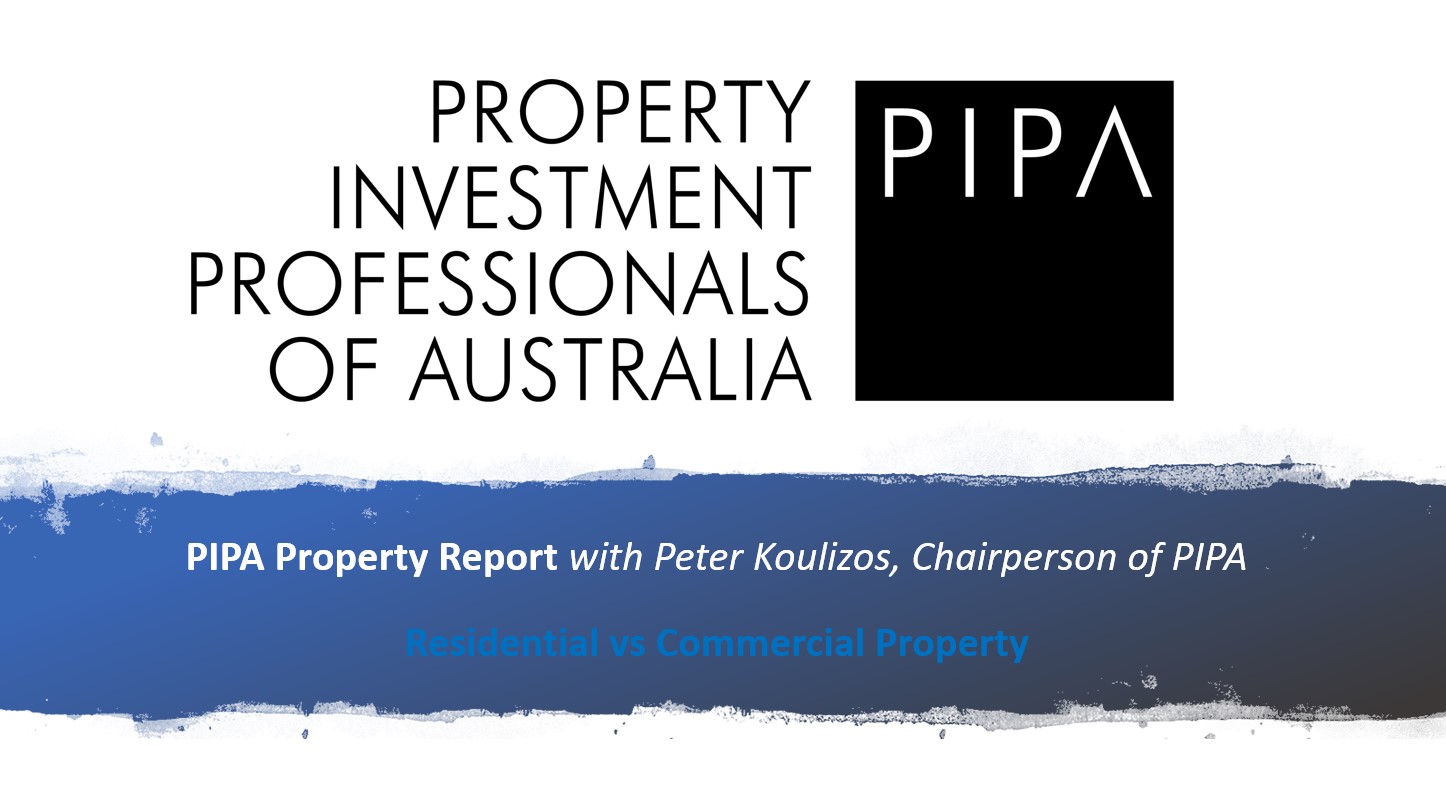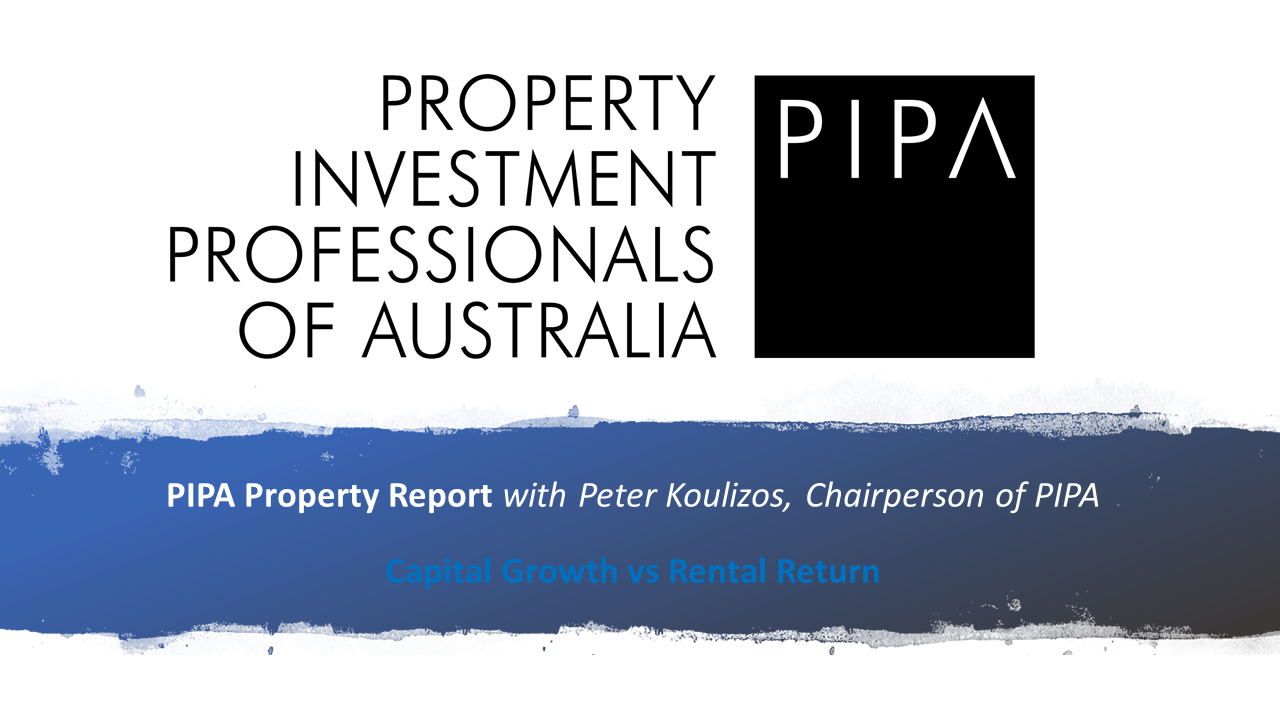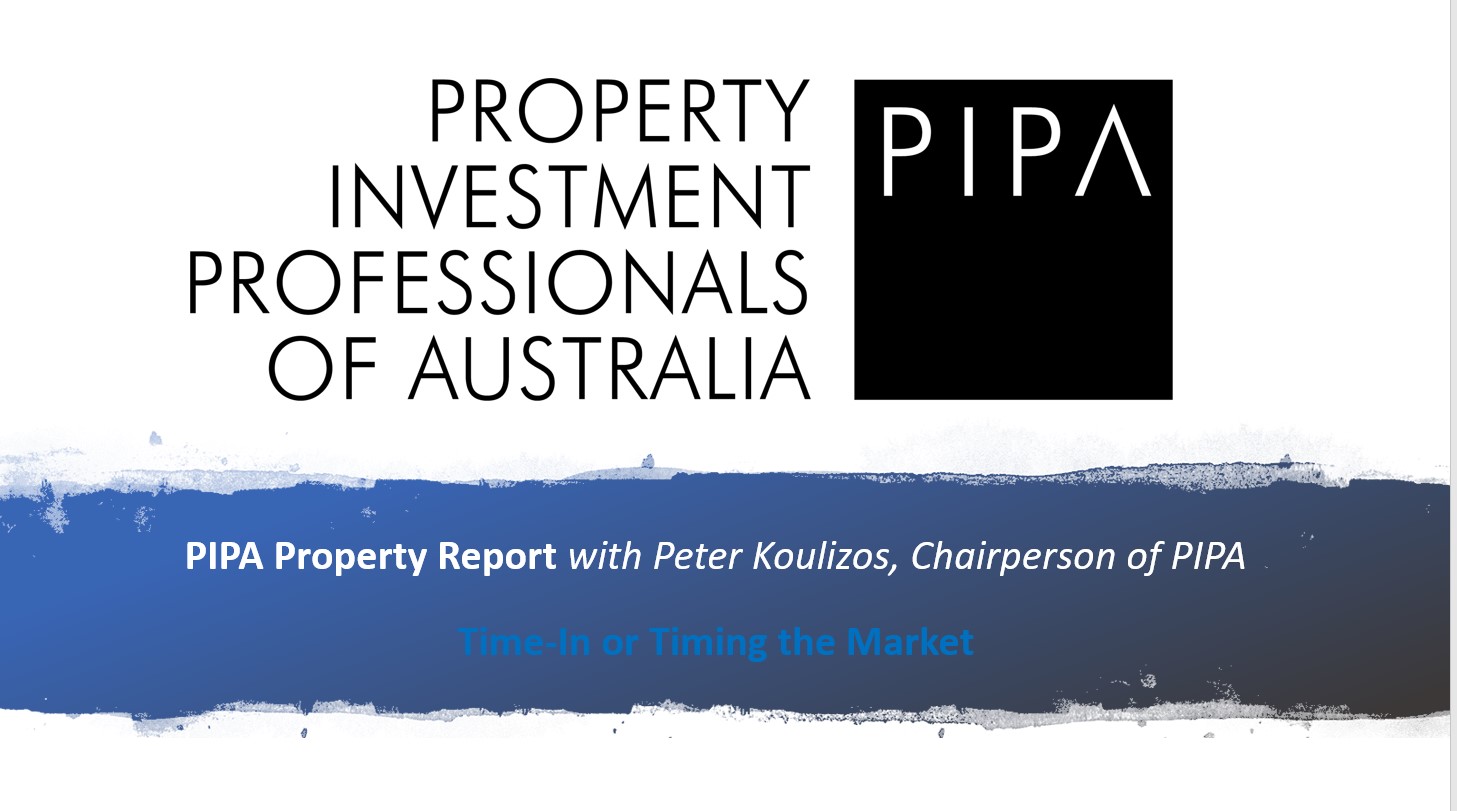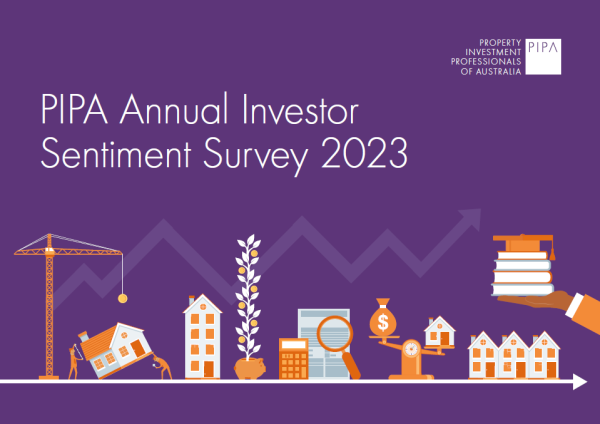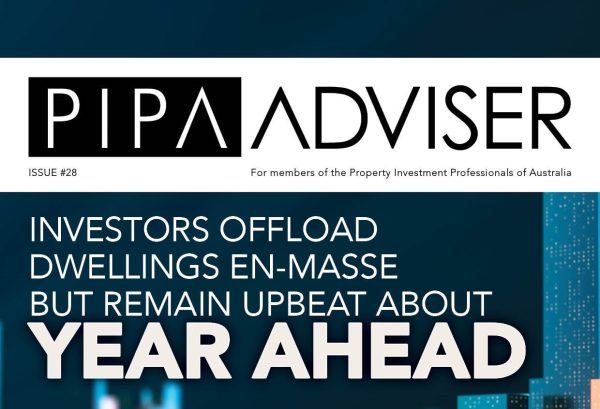PIPA Property Report – Stamp Duty
Jul 2020Karen Millers
Categories
Location ReportsMedia releasesNational market updatesPersonal advisersPIPA AdviserPIPA Annual Investor Sentiment SurveysPIPA Member ProfilesPIPA video updatesPIPA webinarsPodcastsProperty advisersProperty newsLatest Articles
‘More chance of winning lotto’ than housing targets being met
PIPA Member Profile | Amanda Turner, Opulence Property
In this special monthly video update, PIPA Chairperson, Peter Koulizos discusses the advantages and disadvantages of swapping stamp duty for a new property tax.
Transcript
– Hi welcome to the PIPA Property Report with me Peter Koulizos the chairperson of the Property Investment Professionals of Australia. The purpose of these reports is to provide people in the property investment industry, not just property investment professionals, but also property investors with information to hopefully inform and educate your decision making. So today’s property report is looking at stamp duty. So there’s been a lot of talk recently, especially in the eastern states, about swapping stamp duty for, a new property tax. But there are some advantages and some disadvantages. With that move. It’s actually already in operation in the ACT, they are slowly implementing the new property tax and getting rid of stamp duty. But what I would like to do today is not necessarily say that one is better than the other, either we keep stamp duty or we move totally to a new property tax but to explain to you, the reasons why one might be a good move and why it might not be such a good move. So again, everybody involved in property investment can make some informed and educated decisions. So let me just share my screen. So advantages of swapping stamp duty for a new property tax. Firstly, it’s going to be easier for first time buyers to get into the residential property market. Why? because at the moment first time buyers have to come up with a deposit. And let’s call it a 10% deposit. And they also have to come up with stamp duty. So if you’re looking to buy a $600,000 property, your deposit needs to be a minimum of $60,000. And then your stamp duty is going to be about another $24,000. So stamp duty is around about 4% of the purchase price. Varies from state to territory, because stamp duty is a state government tax, but so you’re looking at the $60,000 deposit plus 24 $25,000 in stamp duty. So before a first time buyer can get into the market, they need $85,000. Whereas if they got rid of stamp duty, they would only need to save the $60,000 for the deposit. So obviously it’s going to make it easier for them to get into the market. That actually makes upgrading and downsizing or just generally shifting house more affordable, because now if you’re living in a house and you’re looking to move firstly, you’re going to be paying fees to sell your house, the real estate agent who’s going to charge about 2%. And then there are marketing costs. And then when you buy the new house, you’ve got stamp duty on top of that. So a lot of people are quite reticent to move, because it is so costly to transact in property. And many people can just stay where they are and maybe do a renovation or even an extension to their own home. Because if I use that example that I had before the $600,000 property, then $84,000 or $85,000 is just gone just in shifting, so you won’t see anything for that sort of money. But if they did get rid of stamp duty, then it would make people moving house, whether they’re upgrading downsizing or whatever they’re doing much easier. And that’s better for the property market because rather than having people staying in houses that are too big for them, or too small for them, people move and then allow other families to move into those homes. So we make more efficient use of their property stock. Now there’s more. The good thing for state governments about getting rid of a stamp duty and replacing it with a new property tax annual property tax is its more regular income for the state government. So, in a property boom, state governments are very happy with that because in a property boom generally more property is transacted or bought and sold more stamp duty, more money in the state government budget. But when the property market is not doing so well the opposite is true. So, generally state government budgets need to be regular because this expenditure is relatively regular. Yes it increases probably at the rate of inflation. But they need regular income so they can budget for major expenses like roads, hospitals, schools and so on. So if they knew that everybody had to pay a particular property tax every year, then they could virtually bank on that. And they can budget much better than trying to factor in is the property market going to boom, is the property market going to slow down, which is then going to cause some problems for state governments. So that’s the advantages of swapping stamp duty for a new property tax. Easier for first time buys to get into the residential property market, makes shifting easier and more regular income for state governments. However, there are some disadvantages as well. So first one, it encourages property investors to speculate. So just like high miners who don’t want to move that often because it’s so costly. Property investors don’t want to buy sales buy sell, because it is so costly. And what that does is if we have less speculators in the market, the market is more stable. Take, for example the share market, the share market has lots of speculators. And we can we see the share market going up and down almost on a minute by minute basis. But you can have some very big ups and some very big downs in the share market. Unlike the property market, one because we don’t have as many speculators and two, because unlike the share market property investors, property is generally bought by people as a home. So about 70% of properties bought as a home not as an investment, whereas everything in the share market is an investment. So, getting rid of stamp duty, encourages investors to come in or anyone who’s looking to make some quick money, buy a property fix it up sell it, buy the next one no stamp duty fix it up, sell it, buy the next one no stamp duty fix it up sell it. So that encourages more speculation, which is not necessarily good thing in a property market. Double dipping, so what happens for those of us that have already paid stamp duty in our properties? Do we have to now go and pay an annual property tax? To me that would seem unfair, the fair thing to do would be to grandfather in other words, if you’ve already paid stamp duty on a property, then you don’t have to pay the annual property tax until one day you decide to sell that property. And then the next one you buy, there’s no stamp duty on it. So therefore, you have to pay the new annual property tax. So needs to be some fairness considered there. If it’s an annual imposed on all property owners. We all understand that buying properties is an expensive exercise. So the current stamp duty is just a part of that. So generally, stamp duty like in the example that I gave before tens of thousands of dollars when you purchase that property, but only pay it once. However if there was a new annual property tax imposed. And let’s say for the medium price Australian house, then the new annual property tax to cover the income that is the stamp duty rises would have to be around about $2,000 a year. Now, the more expensive the property, the higher the new property tax. And the opposite is true for Cheaper Property, so it’s just another impost for all property owners, whether they’re investors or owner occupiers on top of the council rights, the water rights, the insurance, the repairs and maintenance. So that needs to be factored into everybody’s budget. However, for those of us that are working, then it’s a lot easier than for those who are not. What about those people on fixed incomes, in particular those people on the old age pension. Do they have they may have built or bought their house back in the 1950s or 60s. They’re living in the same house. They pay their stamp duties all that time ago. What happens if an annual property tax is brought in for everybody no concessions. Then we have pensioners and the single age pension is about 24,000 a year. If we have pensioners who are living in relatively expensive homes, say in our larger capital cities like Sydney and Melbourne, that is going to provide some heartache I would imagine for those people ’cause that’s gonna be a relatively large expenditure. So again, to be fair consideration needs to be given to those people who may not be able to afford it in particular, people on social welfare or pensions. So the purpose of today is not necessarily to say Abolishing stamp duty for a new property tax is a good thing or a bad thing. But it’s really just there to, get you to think about the advantages, and the disadvantages of, this particular initiative. So, keep an eye out for any news about that generally, it’s going to come from the state government politicians. And then you can make informed and educated decisions, not that you’ll be in the in making the decision unless you happen to be voting for that particular party come election time. But just keep in mind that there are some good things and not so good things about that particular initiative. So that’s all for this particular PIPA property report. Thank you very much for your time, and hopefully you can join us again for our future PIPA property reports. Thank you.
